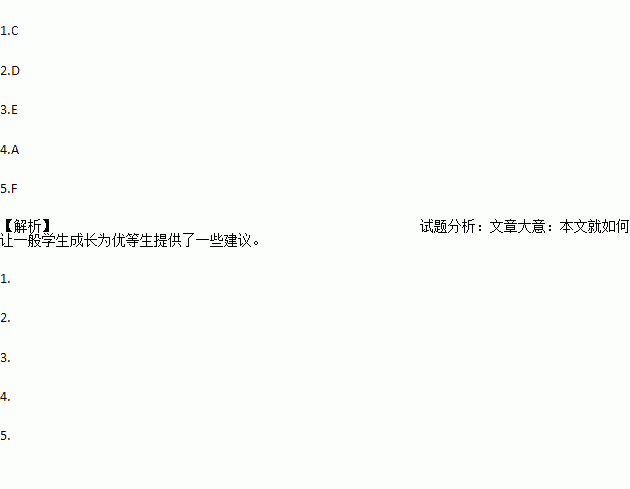题目内容
Maybe you are an average(一般的) student. You probably think you will never be a top student. This is not necessarily so, however. Anyone can become a better student if he or she wants to. Here’s how:
1. When planning your work, you should make a list of things that you have to do. After making this list, you should make a schedule(计划) of your time. First your time for eating , sleeping, dressing, etc. Then decide a good, regular time for studying.( Don’t forget to set aside(留出) enough time for entertainment. A weekly(每周的) schedule may not solve all your problems, but it will force(强迫) you realize what is happening to your time.
2. . Look around the house for a good study area. Keep this space, which may be a desk or simply a corner of your room, free of everything but(除了) study materials(材料). No games, radios, or television. When you sit down to study, concentrate on(集中精力) the subject.
3. There are other methods that might help you with your studying. Listening carefully in class means less work later. Taking notes will help you remember what the teacher says.
4. . When you get home from school, go over (复习)your notes, review the important points that your teacher is going to discuss the next day, read that material. This will help you understand the next class. If you do these things regularly, the material will become more meaningful(有意义的), and you’ll remember it longer.
5. . The purpose(目的)of a test is to show what you have learned about a subject. They help you remember your new knowledge. The world won’t end if you don’t pass a test, so don’t be over-- worried.
A.Study regularly.
B.Believe in yourself.
C.Plan your time carefully.
D.Find a good place to study.
E. Make good use of your time in class.
F. Develop a good attitude towards tests.
G. This will help you understand the next class.

